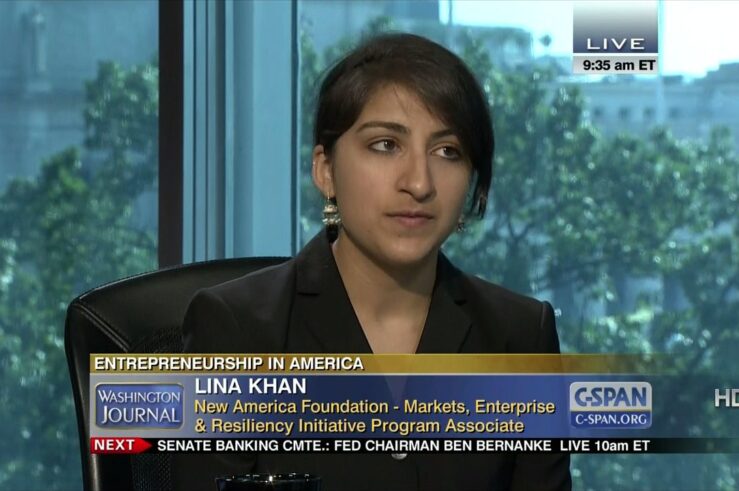Showing archive for: “Consumer Welfare Standard”
FTC Antitrust Enforcement and the Rule of Law
The language of the federal antitrust laws is extremely general. Over more than a century, the federal courts have applied common-law techniques to construe this general language to provide guidance to the private sector as to what does or does not run afoul of the law. The interpretive process has been fraught with some uncertainty, ... FTC Antitrust Enforcement and the Rule of Law
How US and EU Competition Law Differ
U.S. and European competition laws diverge in numerous ways that have important real-world effects. Understanding these differences is vital, particularly as lawmakers in the United States, and the rest of the world, consider adopting a more “European” approach to competition. In broad terms, the European approach is more centralized and political. The European Commission’s Directorate ... How US and EU Competition Law Differ
The Klobuchar Bill’s Not-So-Bright Lines for Antitrust Scrutiny
In a recent op-ed, Robert Bork Jr. laments the Biden administration’s drive to jettison the Consumer Welfare Standard that has formed nearly half a century of antitrust jurisprudence. The move can be seen in the near-revolution at the Federal Trade Commission, in the president’s executive order on competition enforcement, and in several of the major ... The Klobuchar Bill’s Not-So-Bright Lines for Antitrust Scrutiny
A First Glance at the Biden Executive Order on Competition: The Good and the Bad (Including Much that Looks Ugly)
The Biden Administration’s July 9 Executive Order on Promoting Competition in the American Economy is very much a mixed bag—some positive aspects, but many negative ones. It will have some positive effects on economic welfare, to the extent it succeeds in lifting artificial barriers to competition that harm consumers and workers—such as allowing direct sales ... A First Glance at the Biden Executive Order on Competition: The Good and the Bad (Including Much that Looks Ugly)
Going Back to Antitrust Basics
Advocates of legislative action to “reform” antitrust law have already pointed to the U.S. District Court for the District of Columbia’s dismissal of the state attorneys general’s case and the “conditional” dismissal of the Federal Trade Commission’s case against Facebook as evidence that federal antitrust case law is lax and demands correction. In fact, the ... Going Back to Antitrust Basics
FTC Competition Rulemaking Flunks a Cost-Benefit Test
There is little doubt that Federal Trade Commission (FTC) unfair methods of competition rulemaking proceedings are in the offing. Newly named FTC Chair Lina Khan and Commissioner Rohit Chopra both have extolled the benefits of competition rulemaking in a major law review article. What’s more, in May, Commissioner Rebecca Slaughter (during her stint as acting ... FTC Competition Rulemaking Flunks a Cost-Benefit Test
Alston Decision Shows Consumer Welfare Standard Isn’t Broken
From Sen. Elizabeth Warren (D-Mass.) to Sen. Josh Hawley (R-Mo.), populist calls to “fix” our antitrust laws and the underlying Consumer Welfare Standard have found a foothold on Capitol Hill. At the same time, there are calls to “fix” the Supreme Court by packing it with new justices. The court’s unanimous decision in NCAA v. ... Alston Decision Shows Consumer Welfare Standard Isn’t Broken
Dynamic Merger Efficiencies: The Case of Pharmaceutical Markets
The recent launch of the international Multilateral Pharmaceutical Merger Task Force (MPMTF) is just the latest example of burgeoning cooperative efforts by leading competition agencies to promote convergence in antitrust enforcement. (See my recent paper on the globalization of antitrust, which assesses multinational cooperation and convergence initiatives in greater detail.) In what is a first, ... Dynamic Merger Efficiencies: The Case of Pharmaceutical Markets
What Lina Khan’s appointment means for the House antitrust bills
Her appointment also comes as House Democrats are preparing to mark up five bills designed to regulate Big Tech and, in the process, vastly expand the FTC’s powers. This expansion may combine with Khan’s appointment in ways that lawmakers considering the bills have not yet considered. This is a critical time for the FTC. It ... What Lina Khan’s appointment means for the House antitrust bills
NY ‘Abuse of Dominance’ Bill Attacks Consumer Welfare and the US Antitrust Tradition
U.S. antitrust law is designed to protect competition, not individual competitors. That simple observation lies at the heart of the Consumer Welfare Standard that for years has been the cornerstone of American antitrust policy. An alternative enforcement policy focused on protecting individual firms would discourage highly efficient and innovative conduct by a successful entity, because ... NY ‘Abuse of Dominance’ Bill Attacks Consumer Welfare and the US Antitrust Tradition
The Globalization of Antitrust: A Cost-Benefit Appraisal
Overview Virtually all countries in the world have adopted competition laws over the last three decades. In a recent Mercatus Foundation Research Paper, I argue that the spread of these laws has benefits and risks. The abstract of my Paper states: The United States stood virtually alone when it enacted its first antitrust statute in ... The Globalization of Antitrust: A Cost-Benefit Appraisal
Four Reasons to Reject Neo-Brandeisian Critiques of the Consumer Welfare Approach to Antitrust
In the battle of ideas, it is quite useful to be able to brandish clear and concise debating points in support of a proposition, backed by solid analysis. Toward that end, in a recent primer about antitrust law published by the Mercatus Center, I advance four reasons to reject neo-Brandeisian critiques of the consensus (at ... Four Reasons to Reject Neo-Brandeisian Critiques of the Consumer Welfare Approach to Antitrust










